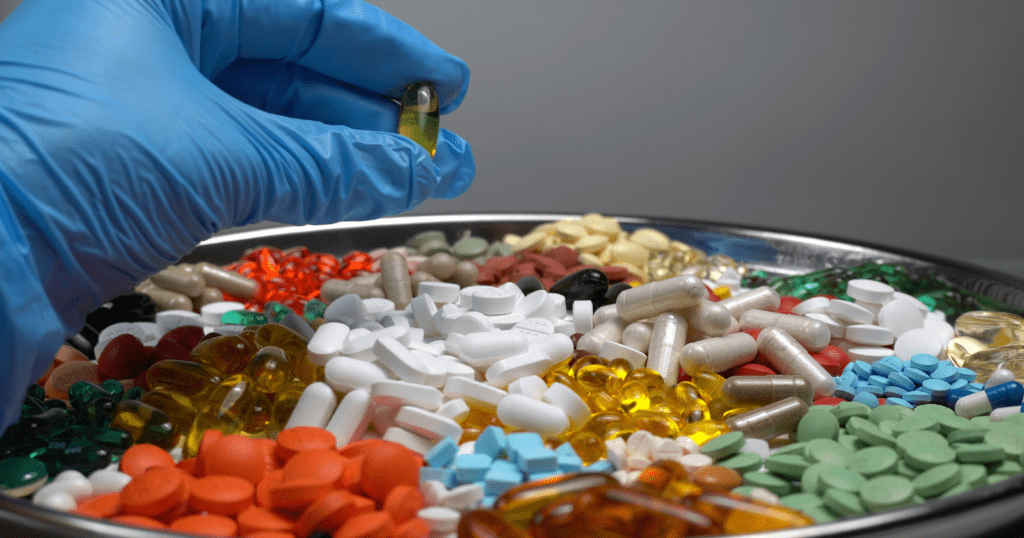Traveling can be a stressful endeavor, even more so when you need to Travel With Controlled Substances. It’s crucial to understand what you can and can’t do when flying with such items. Whether it’s prescription medication or over-the-counter drugs, knowing the rules is the first step to a smooth journey.
Understanding the Rules: Traveling with Controlled Substances
The ability to “Travel With Controlled Substances” is a concern for many travelers, and it’s crucial to be informed about the rules and regulations. This guide will provide insights into safely and legally traveling with controlled substances.
What is a Controlled Substance?
In the realm of law and travel, a controlled substance is typically a drug or chemical whose manufacture, possession, or use is regulated by a government. This can range from illicit drugs to prescription medications and even certain over-the-counter drugs.
The rules for traveling with such substances vary widely, and this guide will delve into these regulations to help ensure your journey goes smoothly.
Controlled Substances and Air Travel: What You Need to Know
When you plan to Travel With Controlled Substances, it’s essential to be aware of the legal implications, safety precautions, and specific rules related to air travel. Missteps can lead to delays, confiscation of substances, or even legal trouble. But worry not; we’re here to guide you through the process, ensuring your travel remains as smooth as possible.
The Role of the TSA
The Transportation Security Administration (TSA) plays a crucial role in ensuring the safety of air travel. When you Travel With Controlled Substances, the TSA is responsible for checking your luggage and ensuring that all substances comply with federal regulations. It’s essential to cooperate with TSA agents and follow their instructions to avoid any potential issues.
How to Prepare for a TSA Check with Controlled Substances
Preparation is key when you need to Travel With Controlled Substances. Firstly, always pack your substances properly in your carry-on bag. Secondly, declare them at the security checkpoint. Lastly, always have your prescription or medical documentation with you. Following these steps will help ensure a smoother screening process.

How to Travel Safely and Legally with Prescription Medications
Prescription medications often fall under the category of controlled substances. When traveling, always keep these medications in their original packaging, clearly labeled with your name and the prescribing doctor’s details. Moreover, carrying a copy of your prescription can further validate your need for these medications.
In the case of liquid medications, remember that they are subject to the TSA’s liquid rules, which allow certain exceptions for medical needs.
Special Considerations for International Travel
International travel often means encountering varying regulations from country to country. Before you embark on your journey, research the controlled substance rules of your destination country. This might involve reaching out to the country’s consulate or embassy or visiting their official government website. Being prepared will help you avoid potential legal troubles and ensure a smooth travel experience.
Traveling with Over-the-Counter Drugs: Do’s and Don’ts
Over-the-counter drugs, while generally less regulated, can still cause complications if not handled correctly. Some substances, while legal in your home country, might be considered controlled substances in other countries. To avoid complications, keep these drugs in their original packaging, and consider carrying a doctor’s note if you’re traveling with a large quantity.
Is Marijuana a Controlled Substance?
Marijuana, also known as cannabis, is indeed classified as a controlled substance in many jurisdictions. The legal status of marijuana varies widely around the world and even within countries like the United States. Therefore, if you plan to travel with marijuana, it’s crucial to be well-versed in the regulations of your departure point, destination, and transit points.
What About Air Travel With Marijuana?
The regulations surrounding travel with marijuana can be especially complex due to varying laws from state to state and even country to country. While certain regions may permit the use of marijuana, both recreationally and medicinally, others have strict prohibitions against it.
It’s important to be aware of the specific rules of your departure location, destination, and any areas you may be passing through when planning to travel with marijuana.
Tips for Handling Situations at Security Checkpoints
Effective communication is vital when you travel with controlled substances. If a TSA agent questions you about your substances, calmly explain your medical need for them, showing your prescription or doctor’s note if necessary. Remember, the agents are there to ensure the safety of all passengers, so cooperation is key.
Dealing with Unexpected Issues
Even with careful preparation, unexpected issues may arise when you travel with controlled substances. For example, your medication could be lost or stolen. In such cases, having a plan can save you a lot of stress.
Carry a copy of your prescription, and know the generic name of your medication, as brand names can differ from country to country. This will allow you to replace your medication more easily should the need arise.

Frequently Asked Questions About Travel With Controlled Substances
Navigating the world of travel regulations, particularly when it comes to controlled substances, can be tricky. To help clarify some common points of confusion, here are answers to a few frequently asked questions.
Can I travel internationally with prescription medication?
Yes, but it’s crucial to keep your medication in its original packaging, clearly labeled with your name and the prescribing doctor’s details. Always carry a copy of your prescription, and check the specific controlled substances regulations of your destination country before traveling.
What should I do if my medication is lost or stolen while traveling?
First, don’t panic. Having a copy of your prescription and knowing the generic name of your medication can help. Report the loss or theft to local law enforcement and contact a local pharmacy or medical facility to get a replacement.
Are over-the-counter drugs considered controlled substances?
While most over-the-counter drugs are not considered controlled substances, some may be subject to specific regulations, particularly when traveling internationally. It’s best to keep these drugs in their original packaging and, if you’re traveling with large quantities, consider carrying a doctor’s note.
Remember, these answers are general guidelines. Always check with official resources or a legal expert when planning to Travel With Controlled Substances.
Additional Resources
If you are looking for more tutorials, walkthroughs, and troubleshooting on TSA, here are some additional posts about TSA:
Travel With Controlled Substances – Conclusion
When it comes to how to travel with controlled substances, knowledge is power. Being prepared and informed about the rules and regulations can turn a potentially stressful experience into a smooth journey.
Whether you’re traveling domestically or internationally, ensuring that your controlled substances are packed correctly, declared properly, and backed up with the necessary documentation can make all the difference.
Additional Resources
For more detailed information, consider checking out the TSA’s official page on traveling with medication and the CDC’s advice on Travel With Controlled Substances.
At the end of the day, remember that this guide is just a starting point. Each trip is unique, and being prepared for different scenarios is key to a hassle-free journey when you Travel With Controlled Substances.
